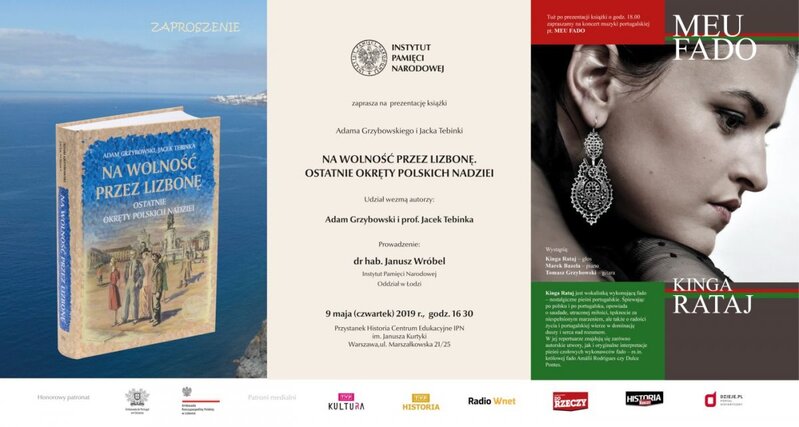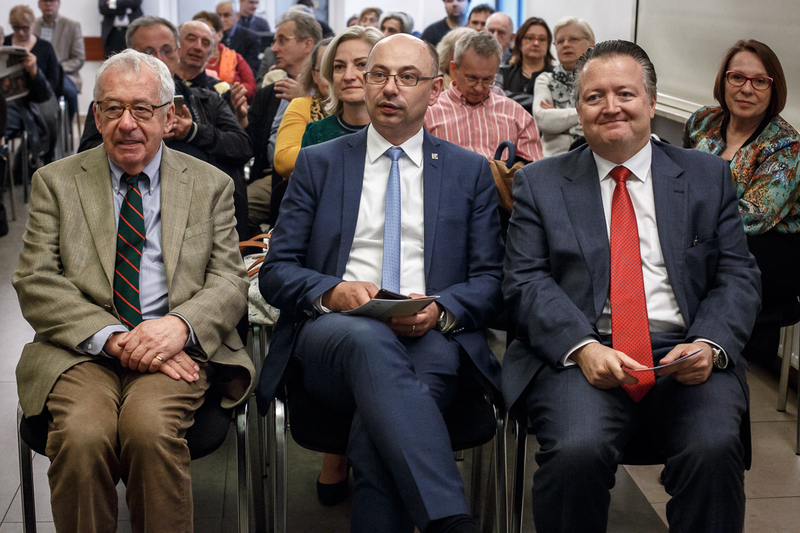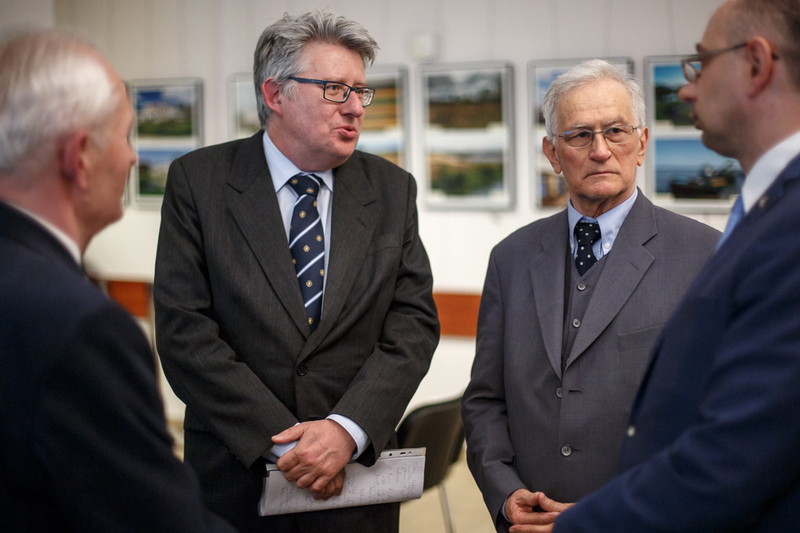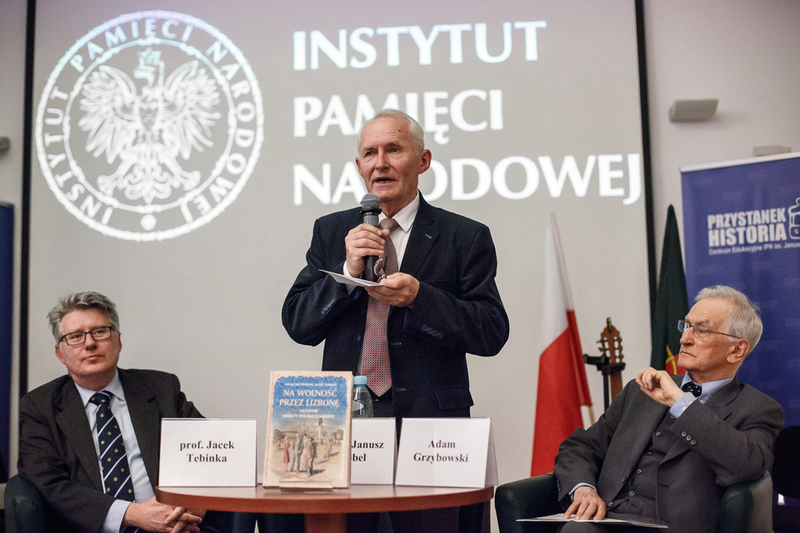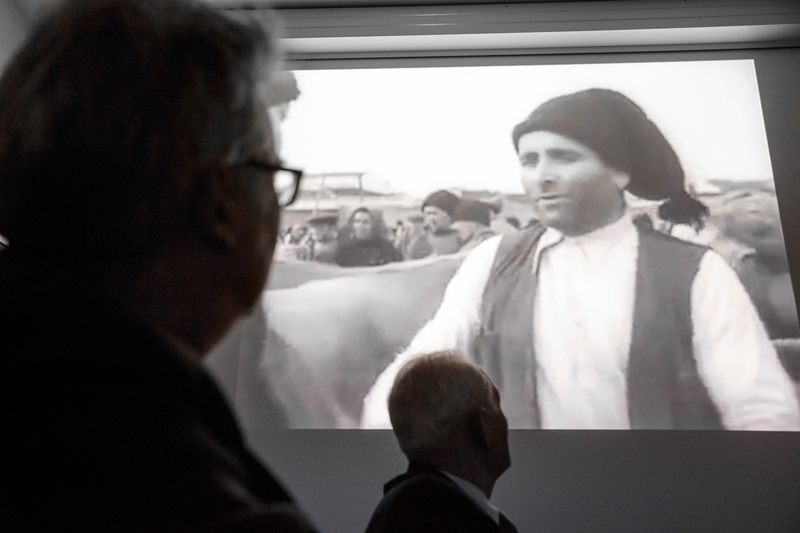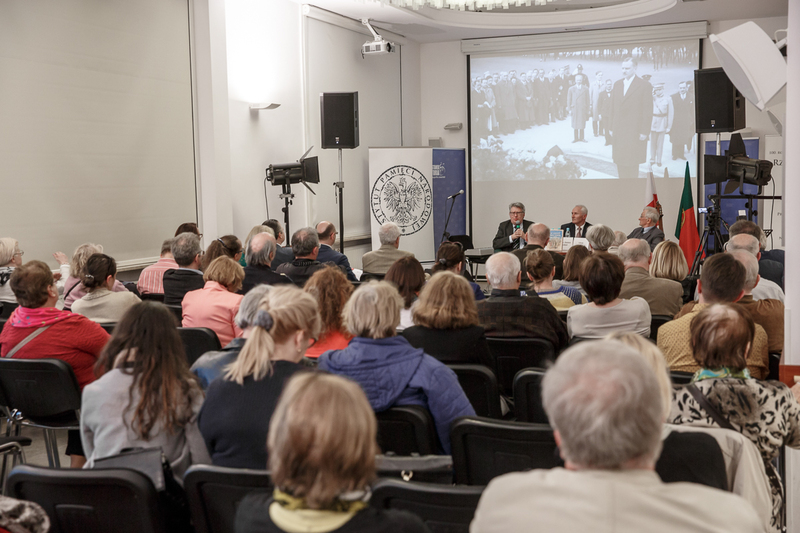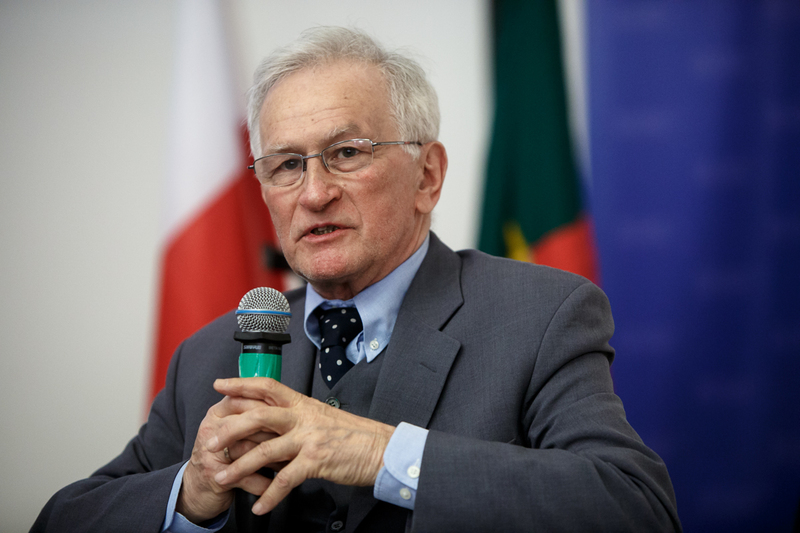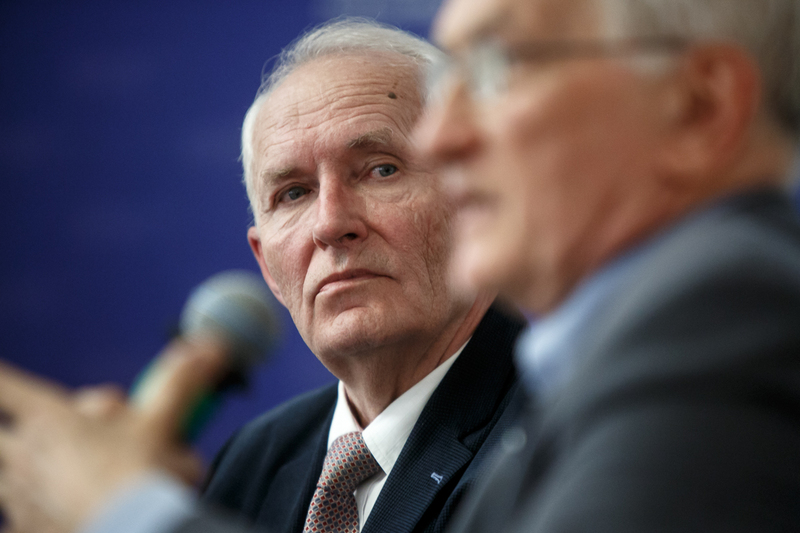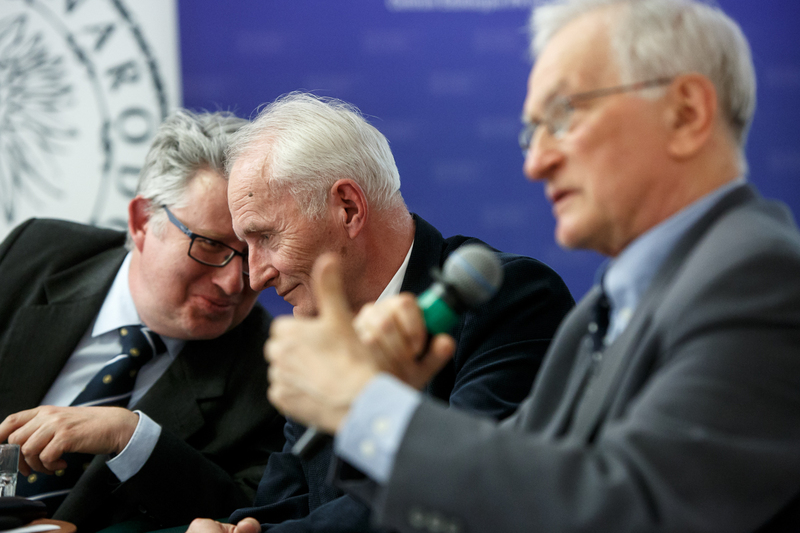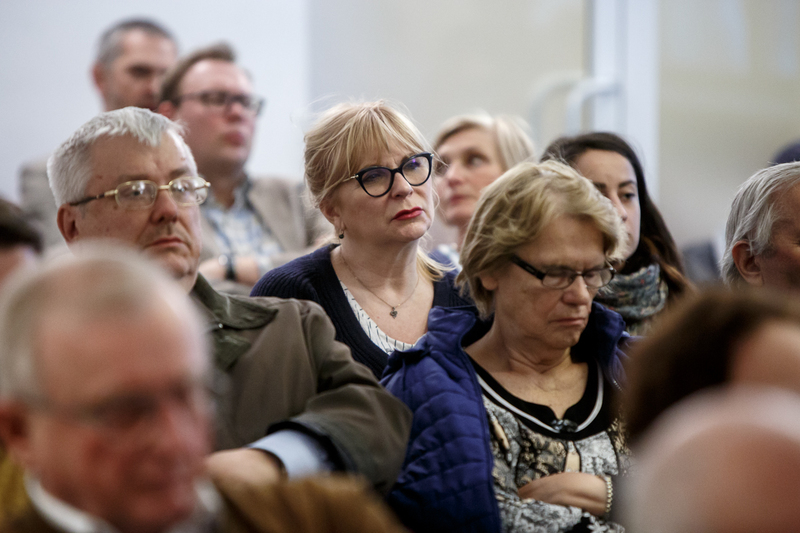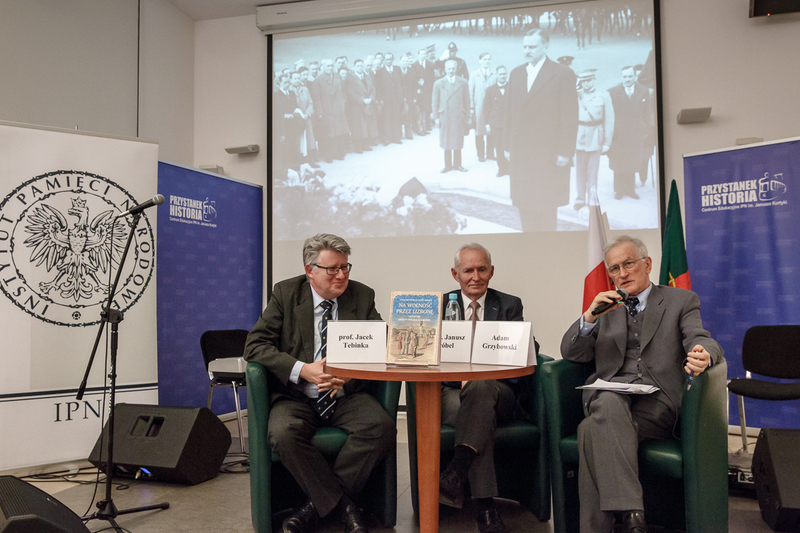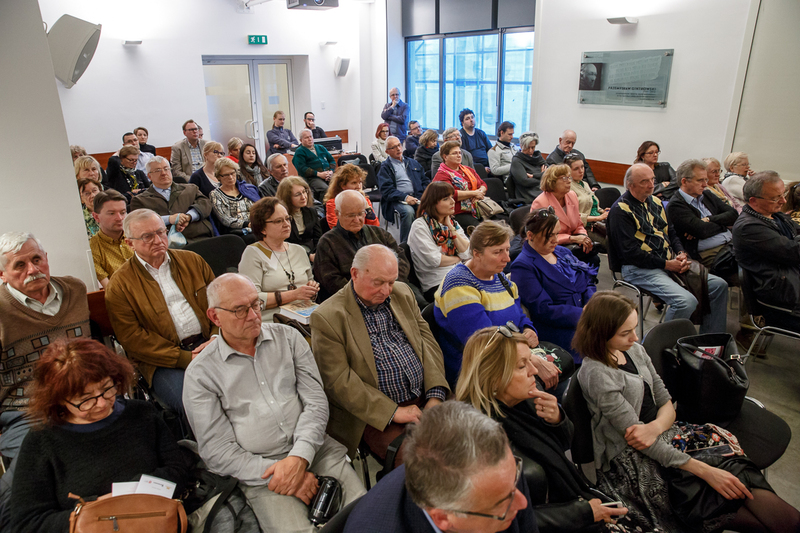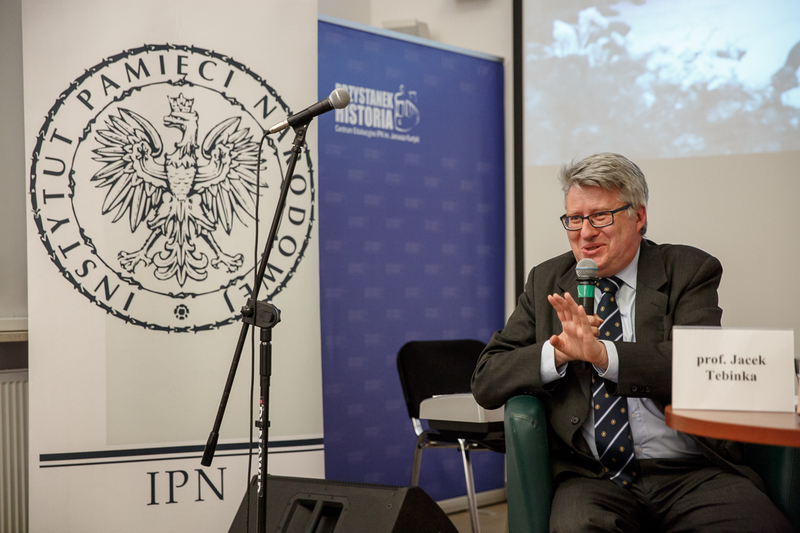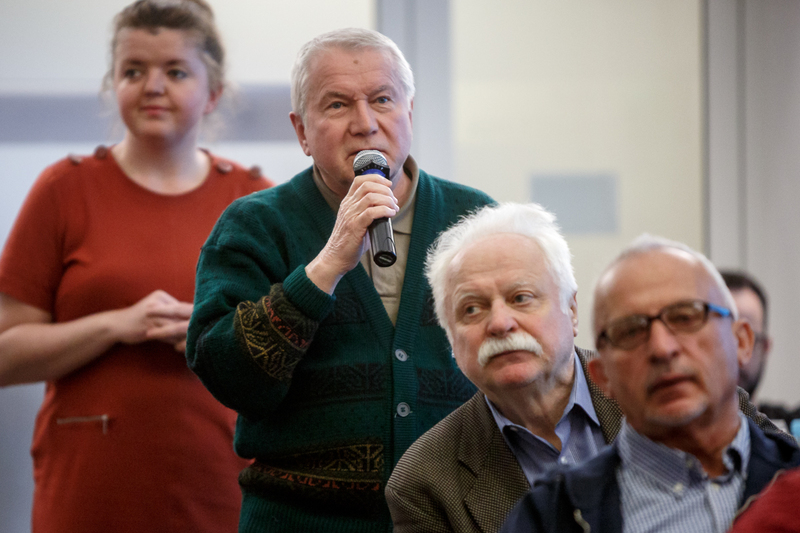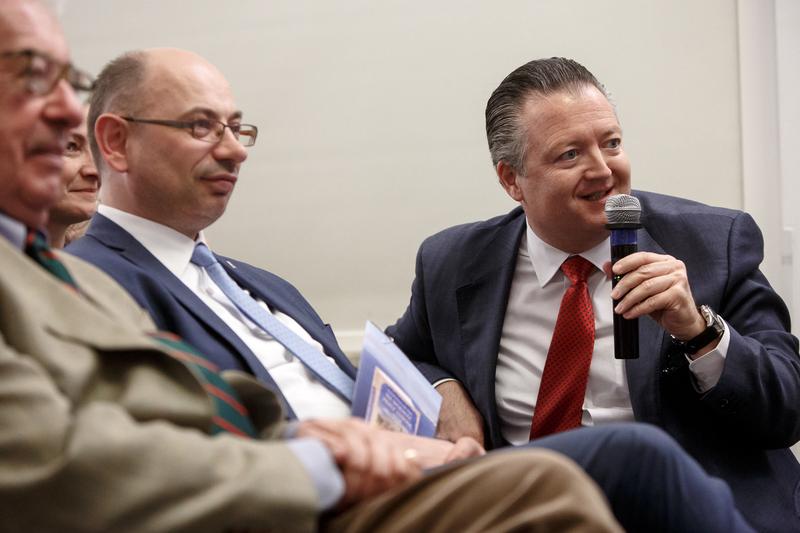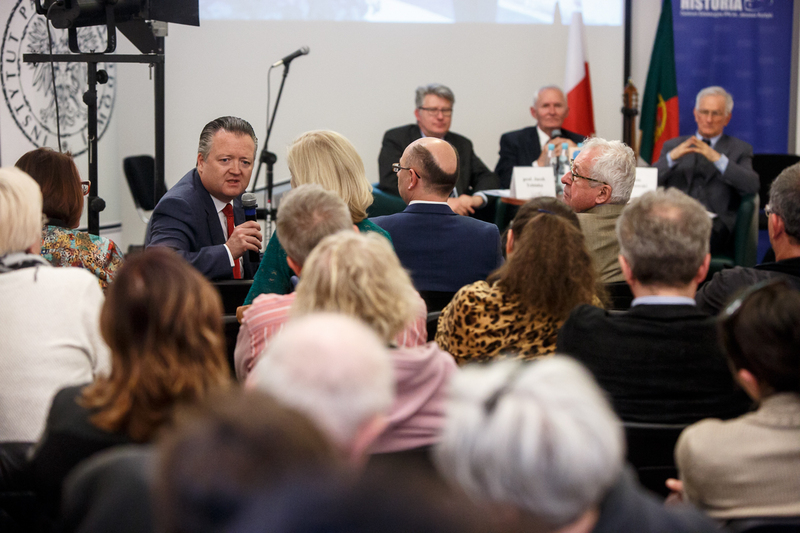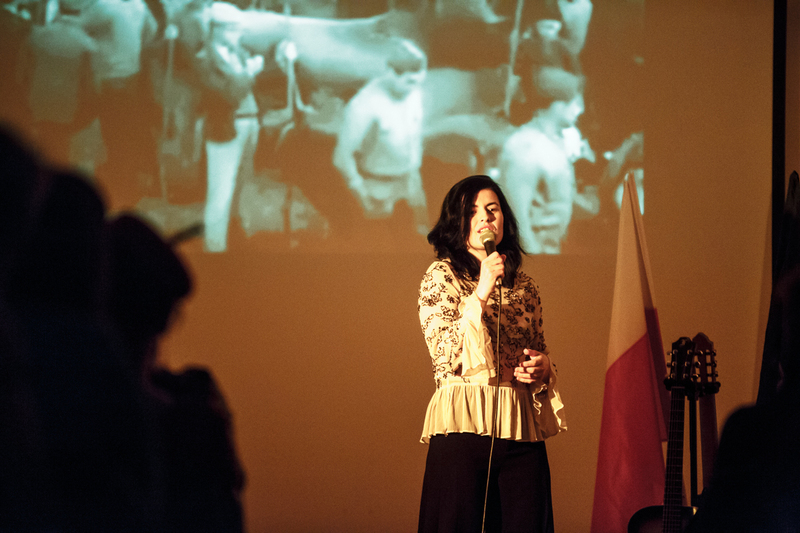The presentation of a book by Adam Grzybowski and Jacek Tebinka "Na wolność przez Lizbonę. Ostatnie okręty polskich nadziei” - Warsaw, 9 May 2019
The Institute of National Remembrance organized a presentation of a new book by Adam Grzybowski and Prof. Jacek Tebinka entitled “Na wolność przez Lizbonę. Ostatnie okręty polskich nadziei.”
The meeting took place on 9 May (Thursday) at 4:30 p.m. at IPN’s Educational Center "History Point" in Warsaw, 21/25 Marszałkowska street.
The book portrays the fate of a large Polish refugee colony in Portugal in the years 1939-1945. It presents many aspects of the problem of Polish refugees during World War II, including completely forgotten political, diplomatic and financial efforts of the Polish government in London and other central institutions, aimed at providing help for them outside the borders of occupied Poland.
The meeting was started with the screening of a documentary, which was commented by Adam Grzybowski: the film presents Portugal in 1940 and what the Portuguese countryside was like. Children running carelessly, idyllic images which in no way foretell what is about to happen. Portugal in 1940 was being prepared for tourism. No one predicted that the German-French war would break out and that refugees would suddenly arrive. The first wave of refugees is estimated at 40,000 people - a wave that needed to be dealt with. It was their first encounter with Portugal, a country with completely different customs and mentality. The place which constituted the first stage of their escape to freedom from German aggression. However, after a relatively peaceful period, it turned out that Portugal was also in danger of German occupation. This fear lasted practically throughout the whole war.
Refugees fled for a number of reasons including racial and political ones. There were also those who were being evacuated along with the ministries of the Polish Government in France through Portugal and did not manage to reach Great Britain. The refugees headed for Lisbon because, wanting to leave Portugal, they had to seek visas from foreign legates and embassies. They initially thought about the United States, Brazil, and later about any country that would accept refugees. Having a visa, one had to organize a form of transport, which was particularly difficult. Ships and planes were involved. Traveling by passenger ship was dangerous. The Germans were also torpedoing passenger ships. The journey itself was very onerous, and the future of refugees uncertain, because they were not awaited with open arms at their destinations. There were several groups of refugees - civilians, soldiers who wanted to get to Great Britain through Portugal, and engineers and technicians who were needed by the armed forces of the Allied countries and had to be evacuated from France so that they would not work for the German industry. The employees of the Polish Legation, the Polish Red Cross, and the Polish Committee for the Protection of Refugees, deserve to be praised and remembered for the involvement and help offered to so many people. Let's also not forget about the importance of the parcel campaign. It is estimated that 500,000 parcels were sent from Portugal to Poland. In order to get to Portugal, you had to have a lot of luck or "some" money. Refugees held transit visas valid for 24 hours, tourist visas valid for 3 months or residence visas, granted to the few fortunate ones who were able to prove that they were needed in Polish offices or institutions. A big problem for many people holding exposed posts was the ban on working for foreigners.
- Although Portugal was a closed country, it tried to remain as accessible to refugees as possible - said Luis Cabaço, Ambassador of Portugal during the meeting.
The editor Adam Grzybowski stated that while preparing the materials for the book, he did not find printed materials describing the subject of refugees. The pioneer nature of the publication lies in the fact that it was only possible thanks to the descendants of Polish refugees in Lisbon who willingly shared information which was later presented in the book.
The event was attended by :
Adam Grzybowski and Prof. Jacek Tebinka
Ambassador of Portugal Luis Cabaço
Deputy President of the IPN Dr Mateusz Szpytma
Dr hab. Janusz Wróbel - Institute of National Remembrance, Branch Office in Łódź -moderator
Honorary patronage: the Embassy of Portugal in Poland, the Embassy of the Republic of Poland in Lisbon
Media partners: TVP Kultura, TVP Historia, Radio Wnet, "Do Rzeczy", "Historia Do Rzeczy", Dzieje.pl
Shortly after the book presentation, at 6:00 p.m., the participants were invited to a concert of Portuguese music - MEU FADO
Performers:
Kinga Rataj - vocal
Marek Bazela - piano
Tomasz Grzybowski - guitar
https://www.youtube.com/watch?v=DGZctdPcUaE
